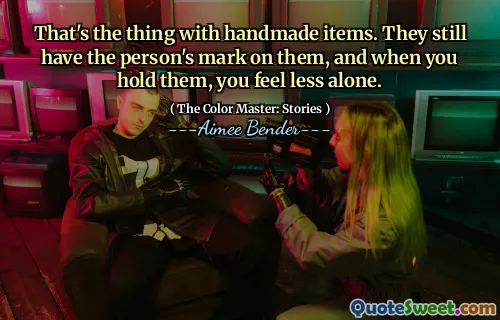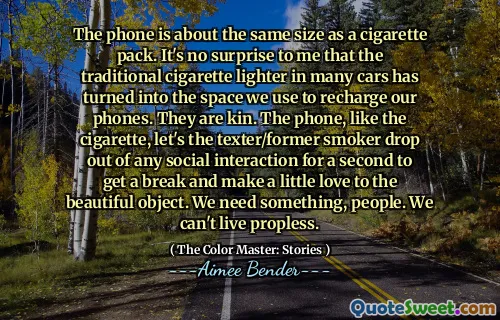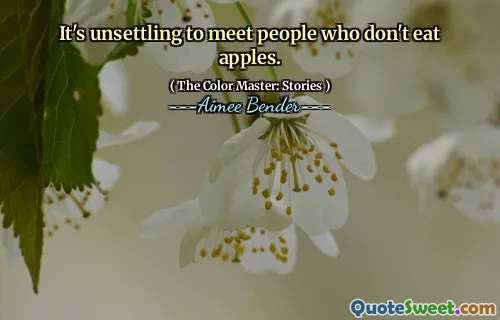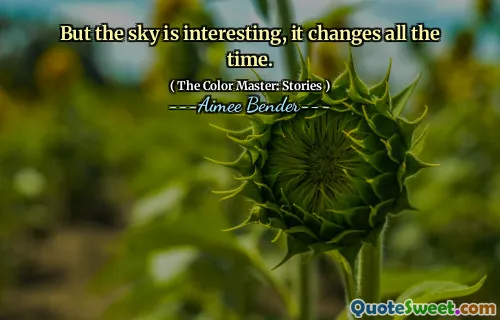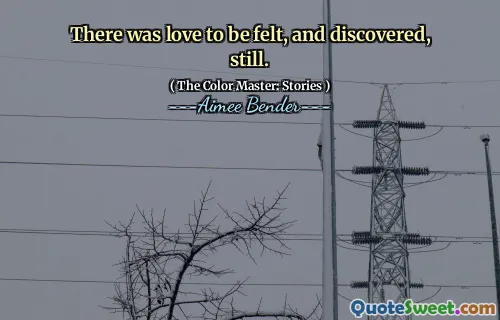
During the descent, she gave the doily to the man across the aisle, worried about his ailing son, and the needlework was so elegant it made him feel better just to hold it. That's the thing with handmade items. They still have the person's mark on them, and when you hold them, you feel less alone. This is why everyone who eats a Whopper leaves a little more depressed than they were when they came in.
In her story "The Color Master," Aimee Bender highlights the emotional connection we have with handmade items through a poignant moment during a descent. A woman gives a beautifully crafted doily to a man who is anxious about his sick son. The elegance of the needlework brings him comfort, demonstrating how personal touches in objects can create a sense of companionship and alleviate feelings of solitude.
Conversely, Bender contrasts this with the experience of eating a Whopper, suggesting that such fast food lacks the emotional warmth and personal connection associated with handmade creations. Instead, indulging in fast food leaves individuals feeling more despondent than before, underlining the importance of meaningful interactions and the comfort found in artisan craftsmanship.
